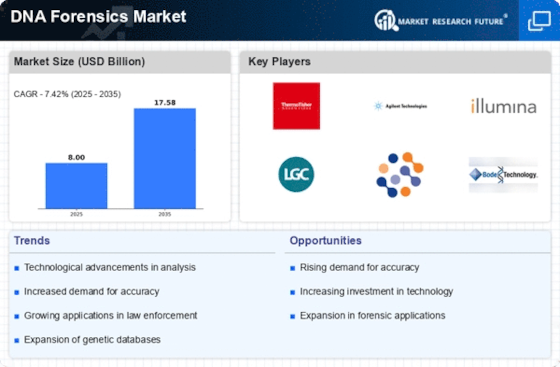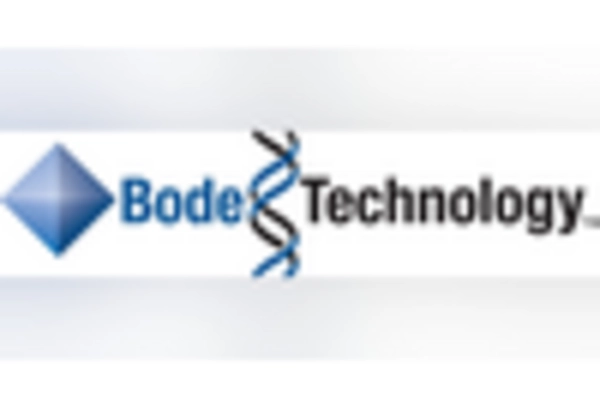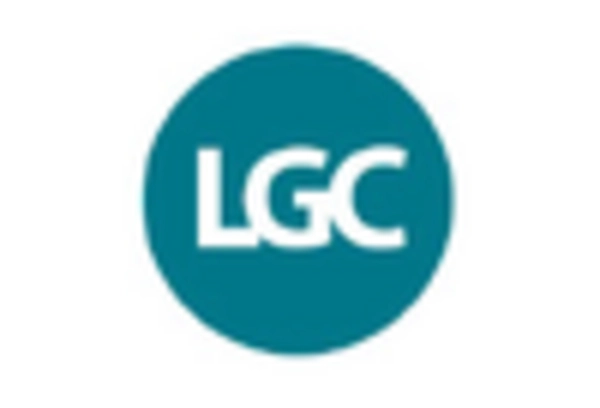Market Share
DNA Forensics Market Share Analysis
The DNA Forensics Market, which is crucial to criminal investigations and paternity testing, conducts a variety of strategic activities to secure market positioning and meet law enforcement and individual needs. DNA forensics companies emphasize unique characteristics and technology advances to differentiate. This may include DNA extraction, analysis, or proprietary database advances. Companies want to lead this highly specialized and vital market by delivering advantages like higher accuracy and shorter processing times to forensic laboratories and law enforcement authorities.
Another important DNA Forensics Market strategy is cost leadership. Some organizations lower DNA testing costs by streamlining laboratory operations, automating, and gaining economies of scale. The cost-effective approach allows them to deliver high-quality DNA forensics services at cheap pricing, making their solutions more accessible to more clients. This technique increases market penetration and positions organizations as credible providers of affordable, cutting-edge DNA testing services in budget-conscious environments.
Increasing DNA testing acceptance in existing markets is a popular DNA forensics market penetration strategy. To promote DNA forensics, companies work with law enforcement, forensic professionals, and legal organizations. Companies aim to increase market share and DNA forensics acceptance by promoting their services as essential tools for solving crimes, finding missing people, and establishing familial links.
Market development in the DNA Forensics Market explores new client categories or geographic areas. This may involve adding DNA testing services for cold cases, large disasters, or legal obligations. Researching DNA analysis techniques helps companies expand their services and find new business prospects.
Customer-centricity is key to DNA forensics service providers' market share. Companies try to gain law enforcement and DNA testing customers' trust by prioritizing accuracy, quality, and legal and ethical compliance. DNA forensics providers' market position is strengthened by positive experiences with reliable results and expert support, which encourage adoption and referrals.
In DNA forensics, strategic alliances and collaborations are crucial. Collaboration with law enforcement, forensic laboratories, and legal professionals advances DNA forensics technology and solves investigation problems. Technology and data analytic partnerships can improve DNA testing services. Collaborations promote market share and foster DNA forensics solution innovation and improvement."



















Leave a Comment